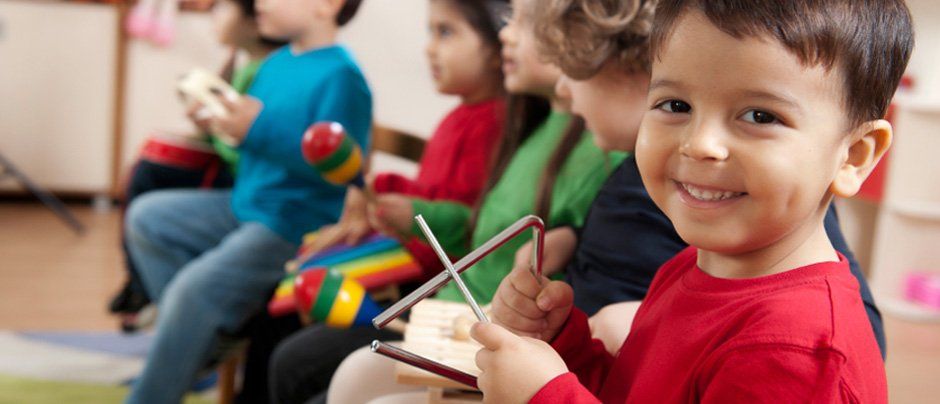Humans and music have a long relationship. Man has explored the joys of music since the oldest known flute was constructed from a vulture’s wing bone 40,000 years ago. Music evokes a strong emotional response. It can help you feel less lonely or develop a sense of your identity. Research has shown the significant impact music plays in children’s wider development. It is no wonder that so many quality preschools and childcare centres include music in their curriculums.
Creative Childcare uses music in its programming to encourage children to express themselves while developing their emotional, intellectual, language and literacy, motor, and social skills. We employ specialised educators who use the power of music to deliver a dynamic social learning experience.
Here are some of the many benefits of incorporating music in early childhood education.
1. It improves coordination and fine motor skills
The auditory senses are linked with the benefits of music. Hearing your favourite tune on the radio can immediately improve your mood. Music does not just appeal to our hearing. Picking up a musical instrument and playing a well-loved song – or creating your own tune – can help improve children’s coordination and fine motor skills. One study showed a significant improvement in the fine motor skills of children who received two years of piano instruction.
2. It improves language development
Communication skills are a vital tool for success in all aspects of life. Music can help children develop into strong communicators. Learning music requires using the same parts of the brain that are used for language development. Singing songs, playing a musical instrument, or listening to new melodies thickens the web of circuits in the brain responsible for auditory processing and comprehension. Music not only helps children learn new words but also stimulates their brains for learning retention.
3. It improves focus and memory
Repetition reinforces memory. Learning to sing a new song or play a new instrument requires a child to focus on the task at hand. As they repeat the same words in a song or play the same notes on their instrument, they master music and their memory and concentration skills.
4. It improves teamwork
Collaboration skills are valued by employers and other environments where people must work together to accomplish a common goal. Children who learn to sing the same song together, or play different instruments to create a combined melody, are learning the importance of teamwork at an early age. Each child must play (or sing) their part to make it work. They depend on one another to make beautiful music.
5. It improves self-esteem
Children are people-pleasers. They work hard to acquire a new skill and then look to the adults in the room to praise them for their accomplishments. Children who work hard to learn a new song or play a new instrument gain the added advantage of equating hard work with reaching a goal.
Making music matter
At Creative Childcare, we embrace the many benefits of music on childhood development. Our creative music sessions are designed to foster a love of music while boosting your child’s social, emotional, and cognitive skills.
If you would like to learn more about how our educators use music, book in with us for a tour of any of our centres. Reach out to us today to learn more about how we can help.


